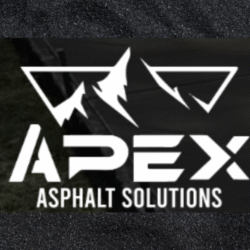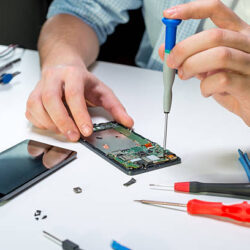Industrial control panels are the backbone of modern automation and process management. They serve as centralized units that monitor, regulate, and control machinery and systems across a wide range of industries. In Dubai, a city known for its rapid industrialization and infrastructure expansion, the demand for reliable control panel manufacturing has grown significantly. The region’s push toward industrial automation, energy efficiency, and smart manufacturing has made control panels essential components for both new and existing facilities.
The Role of Industrial Control Panels
Industrial control panels integrate electrical components such as relays, circuit breakers, switches, transformers, and programmable logic controllers (PLCs) within an enclosure. Their primary function is to provide a safe and efficient interface between operators and machines. By automating processes, they help minimize human error, improve production speed, and ensure safety compliance.
In manufacturing, control panels are responsible for coordinating machinery operations, regulating temperature and pressure, and monitoring production metrics. In the oil and gas sector, they manage pumps, valves, and drilling systems. In utilities, they are used to distribute power, manage water treatment plants, and control HVAC systems. Essentially, control panels form the operational core of industrial systems that require precision, safety, and reliability.
Industrial Growth and Automation in Dubai
Dubai has become one of the leading industrial hubs in the Middle East, driven by a diversified economy and strategic government initiatives. With the ongoing development of industrial zones, free trade areas, and advanced manufacturing facilities, there is a growing need for high-quality electrical and automation systems.
The emirate’s industrial landscape includes sectors such as construction materials, aluminum production, petrochemicals, logistics, and renewable energy. Each of these industries relies heavily on control systems to maintain efficient and safe operations. The rise of smart factories under the UAE’s Industry 4.0 initiative further fuels demand for control panels capable of integrating with digital platforms, Internet of Things (IoT) devices, and data analytics tools.
Key Characteristics of Control Panel Manufacturing in Dubai
Manufacturing control panels in Dubai requires adherence to strict quality standards, safety regulations, and international certifications. The climate, characterized by high temperatures and humidity, also plays a role in the design and component selection for panels intended for outdoor or industrial use.
1. Compliance with Standards:
Manufacturers follow global standards such as IEC, UL, and ISO to ensure product safety and reliability. Compliance ensures that panels can be used in international markets and in projects that demand high technical specifications.
2. Custom Design Capabilities:
Since industries vary widely in their operations, control panel manufacturers often provide customized designs. Tailoring panels to specific applications—whether for HVAC, pumping stations, or conveyor systems—helps optimize performance and extend equipment lifespan.
3. Integration with Automation Systems:
Modern control panels in Dubai are built to integrate with PLCs, SCADA systems, and human-machine interfaces (HMIs). This allows for advanced data monitoring, remote control, and predictive maintenance—features that align with smart manufacturing goals.
4. Durable Construction:
Given the challenging environmental conditions, enclosures are often designed with materials that resist dust, heat, and corrosion. Stainless steel or powder-coated steel housings, along with IP-rated protection, ensure long-term reliability in harsh settings such as factories, marine facilities, and outdoor installations.
The Manufacturing Process
The production of industrial control panels involves several critical steps, each contributing to the final quality and performance of the product.
1. Design and Engineering:
Every project begins with detailed engineering drawings and wiring diagrams based on the client’s requirements. Electrical engineers select components, determine circuit protection, and design control logic that meets the intended functionality. Advanced software tools are used to create accurate layouts and simulations before assembly begins.
2. Component Selection:
The quality and reliability of a control panel depend heavily on the components used. Manufacturers choose circuit breakers, contactors, terminals, and PLCs from certified suppliers that meet international standards. Energy efficiency, voltage ratings, and operational lifespan are key considerations.
3. Assembly and Wiring:
Skilled technicians assemble panels by mounting components on backplates and wiring them according to the approved schematics. Proper labeling, cable management, and adherence to safety codes ensure neatness and functionality.
4. Testing and Quality Assurance:
Before delivery, panels undergo rigorous testing procedures. These may include continuity tests, insulation resistance checks, and functional testing of control logic. For automated systems, PLC programs are verified and simulated to ensure accurate responses to input signals.
5. Installation and Commissioning:
Once delivered to the site, panels are installed and integrated into the larger system. Commissioning teams verify field wiring, run test sequences, and calibrate sensors or actuators to ensure smooth operation.
Applications Across Sectors
Dubai’s diverse industrial ecosystem provides numerous opportunities for control panel applications:
-
Oil and Gas: Managing drilling rigs, pump stations, and refinery automation.
-
Construction and Building Services: Controlling HVAC systems, lighting, and energy management solutions.
-
Water and Wastewater Treatment: Monitoring flow rates, managing pumps, and maintaining water quality.
-
Manufacturing and Assembly Lines: Synchronizing conveyor systems, robotic arms, and material handling processes.
-
Renewable Energy: Supervising solar farms, inverters, and power distribution systems.
Each sector has unique requirements, but all rely on the precision and dependability of industrial control panels to maintain consistent production and operational safety.
Technological Trends Shaping the Industry
The future of control panel manufacturing in Dubai is closely tied to global technological advancements. Several trends are transforming how control systems are designed and operated:
1. Digitalization and Smart Monitoring:
Modern control panels are no longer standalone devices. They are networked components within larger digital ecosystems, enabling real-time monitoring, remote diagnostics, and performance analytics through cloud-based platforms.
2. Energy Efficiency:
Sustainability is a major focus in Dubai’s industrial strategy. Control panels are being designed with energy-saving components such as variable frequency drives (VFDs) and energy monitoring modules to reduce power consumption.
3. Modular Design:
Manufacturers are increasingly adopting modular layouts, allowing panels to be easily expanded or reconfigured as operations grow. This flexibility reduces downtime and supports scalable automation systems.
4. Cybersecurity Integration:
As more control panels connect to digital networks, cybersecurity has become essential. Secure communication protocols and encrypted data transfers are being built into new designs to protect industrial systems from unauthorized access.
Workforce and Skills Development
The control panel manufacturing sector in Dubai benefits from a skilled and diverse workforce. Engineers, electricians, and automation specialists collaborate to deliver high-quality products that meet international standards. Training programs and technical institutions in the UAE emphasize electrical design, PLC programming, and industrial safety, ensuring a steady pipeline of qualified professionals.
Furthermore, government-backed initiatives encouraging innovation and technology transfer have created an environment where local manufacturers can collaborate with international partners, enhancing technical knowledge and production capacity.
Challenges and Opportunities
While the industry is growing, it faces several challenges. The high cost of raw materials and electronic components can affect production costs. Additionally, rapid technological changes require continuous investment in research and training. However, these challenges are balanced by strong market opportunities.
Dubai’s position as a logistics hub makes it an ideal location for exporting control systems to neighboring regions. The ongoing expansion of industrial infrastructure and the shift toward smart cities ensure sustained demand for automation and control equipment.
Conclusion
Industrial control panel manufacturing in Dubai plays a crucial role in supporting the region’s industrial and economic growth. Through adherence to international standards, integration of modern automation technologies, and a focus on quality and customization, manufacturers are contributing to the advancement of industrial efficiency and sustainability.
As Dubai continues to invest in digital transformation, renewable energy, and advanced manufacturing, the demand for sophisticated control systems will only increase. This positions the control panel manufacturing sector as a key component in the emirate’s journey toward becoming a leader in industrial innovation and smart automation.




